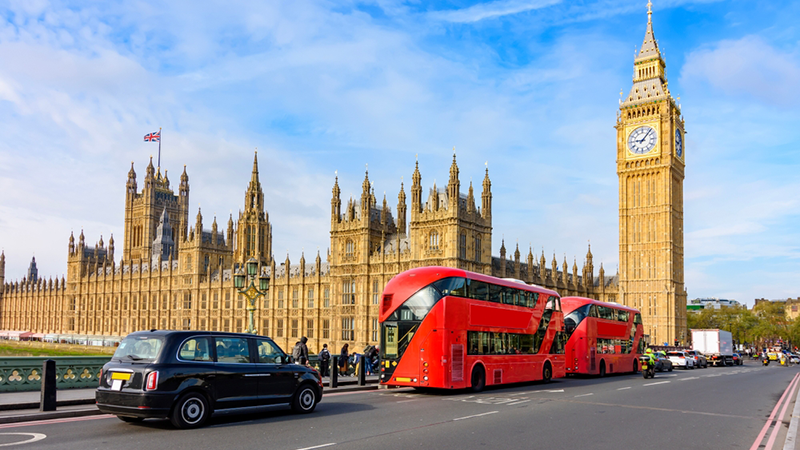Foreign Financial Assets Reporting: A Complete Guide to IRS Form 8938
If so, you might need to file IRS Form 8938 to report those assets.
Navigating US tax preparation for Americans who invest internationally, have overseas investments, and US businesses operating internationally can be daunting. This comprehensive guide simplifies the process, providing straightforward advice to help you confidently manage your tax responsibilities. We delve into effective tax preparation strategies, compliance tips, and the specific challenges associated with international investments, such as differences in financial accounting standards, currency fluctuations, foreign taxes and regulations, and the potential for illiquid markets. This equips you with the knowledge to handle your tax obligations efficiently.
Index
| Key Takeaways |
|
As an American investor venturing into foreign markets, it’s crucial to recognize the tax implications of your investment decisions and the importance of international exposure. Investing in international stocks can provide significant diversification benefits and potential returns, but it also comes with unique tax implications that must be carefully managed. For instance, understanding the differences between tax treaties and the Foreign Account Tax Compliance Act (FATCA) can significantly impact your tax liabilities. When planning tax strategies for international investments, it is also important to consider your investment objectives. Proper tax preparation planning involves not only mitigating double taxation through foreign tax credits but also leveraging tax-efficient investment vehicles that comply with both US and international tax laws.
Effective tax preparation strategies for global investments also entail thorough record-keeping and timely reporting. US investors must accurately report their foreign income, accounts, and assets to avoid severe penalties and ensure compliance with the IRS. Utilizing exclusions and credits like the Foreign Earned Income Exclusion (FEIE) or the Foreign Housing Exclusion can provide significant tax relief for qualifying individuals. Additionally, understanding the nuances of Passive Foreign Investment Companies (PFICs) and Controlled Foreign Corporations (CFCs) is essential for avoiding unexpected tax consequences.
For US businesses operating overseas, strategic tax preparation planning is equally critical. Investing internationally can offer significant benefits, such as increased upside potential, but it also comes with risks, including challenges and extra compliance costs. Businesses must navigate complex international tax landscapes to ensure compliance and optimize their tax positions. One key strategy is to take advantage of tax deferral opportunities available through the proper structuring of entities. By doing so, businesses can defer US taxes on foreign income.
US businesses must stay abreast of the ever-changing international tax regulations and compliance requirements. Regularly reviewing and updating tax strategies is essential to adapt to new laws and international agreements. Businesses should consider the tax implications of cross-border mergers, acquisitions, and joint ventures, which can have significant tax consequences if not properly managed. Utilizing local tax incentives and treaties can also provide substantial tax savings.

To unlock the potential of global markets, American investors with foreign investments must navigate a complex web of tax preparation that spans multiple jurisdictions. International markets offer significant opportunities for higher growth rates and diversified returns, making them crucial for American investors. With the strategic interplay of profits and losses, the astute investor leverages consolidated tax returns to balance the scales to their fiscal advantage.
As an investor with stakes in global sands, vigilance in fulfilling your filing obligations is crucial. Understanding currency exchange rates is essential when reporting foreign assets, as unfavorable changes can impact the value of your investments. The US government rules dictate that foreign financial assets exceeding the $10,000 threshold at any point during the year must be declared through the FinCEN Form 114, also known as the FBAR. Additionally, IRS Form 8938 must be filed for specified foreign financial assets surpassing predefined reporting thresholds, ensuring comprehensive disclosure.
Navigating international taxes involves understanding the intricacies of international tax credits and exclusions. Investing in emerging markets may accentuate risks such as differences in financial accounting standards, currency fluctuations, geopolitical risk, foreign taxes and regulations, and the potential for illiquid markets, which can impact tax credits and exclusions. As an investor living abroad, you can claim deductions for a portion of your overseas housing expenses. This provision not only eases the burden of foreign living but also serves as an essential element of a well-crafted tax return, potentially preventing errors and avoiding inflated tax bills.

Owning property abroad comes with many tax implications that American investors must carefully navigate to ensure compliance and optimize their tax situations. In addition to owning property, investing in a mutual fund that focuses on foreign markets can also have significant tax implications that need to be considered. Similarly, owning foreign stock also has tax implications that must be considered. One of the primary considerations is the need to report foreign rental income. Investors can also claim deductions for related expenses, such as property management fees, maintenance costs, and mortgage interest, which can offset the taxable income from the property. You have to be aware of tax credits associated with the reporting of rental income in the local country and the associated taxes paid in foreign countries.
In addition to rental income, Americans must be aware of the implications of selling foreign property. Any capital gains realized from the sale are subject to U.S. capital gains tax. However, foreign taxes paid on the sale can often be credited against U.S. taxes owed through the Foreign Tax Credit, reported on Form 1116. It’s essential to keep detailed records of the purchase price, improvements, and selling price to accurately calculate the capital gains. Furthermore, understanding and utilizing tax treaties between the U.S. and the country where the property is located can help in reducing the overall tax burden.
Failing to meet these reporting requirements can result in significant penalties, so staying informed and diligent is crucial for property owners abroad. Criminal violations of FBAR rules can result in a fine and up to five years in prison. The IRS will not penalize those who properly report a foreign financial account on a late-filed FBAR, and the IRS finds they have reasonable cause for late filing. If you have not reported a foreign bank account, we advise you to meet with a tax advisor familiar with international tax laws to report your accounts and assets before the IRS finds out about your foreign investments.
Here are some of the forms that US Individuals with foreign investments must file with the IRS:
Form 1040 - U.S. Individual Income Tax Return: The primary form used by U.S. taxpayers to file their annual income tax returns. All income, including foreign income, must be reported on this form.
Form 1116 - Foreign Tax Credit: Used to claim the foreign tax credit for income taxes paid to a foreign country, which helps prevent double taxation on the same income.
Form 2555 - Foreign Earned Income: Allows qualified individuals to exclude up to a certain amount of foreign-earned income from U.S. taxation and to claim the foreign housing exclusion or deduction.
FinCEN Form 114 - Report of Foreign Bank and Financial Accounts (FBAR): Required for U.S. persons who have a financial interest in or signature authority over foreign financial accounts exceeding $10,000 at any time during the calendar year.
Form 8938 - Statement of Specified Foreign Financial Assets: Required under FATCA, this form reports specified foreign financial assets if they exceed certain thresholds.
Form 3520 - Annual Return To Report Transactions With Foreign Trusts and Receipt of Certain Foreign Gifts: Used to report certain transactions with foreign trusts, ownership of foreign trusts, and receipts of large gifts or bequests from foreign persons.
Form 3520-A - Annual Information Return of Foreign Trust With a U.S. Owner: Filed by foreign trusts with at least one U.S. owner to provide information about the trust, its U.S. beneficiaries, and any U.S. person treated as an owner of any portion of the foreign trust.
Form 5471 - Information Return of U.S. Persons Concerning Certain Foreign Corporations: Required for U.S. citizens and residents who are officers, directors, or shareholders in certain foreign corporations.
Form 8865 - Return of U.S. Persons For Certain Foreign Partnerships: Used by U.S. persons to report their interests in foreign partnerships.
Form 8621 - Information Return by a Shareholder of a Passive Foreign Investment Company or Qualified Electing Fund: Filed by U.S. persons who are shareholders of a passive foreign investment company (PFIC) to report income and pay any applicable taxes.
Understanding and properly filing these forms is crucial for Americans investing abroad to stay compliant with IRS regulations and optimize their tax positions.

Understand Reporting Requirements: Familiarize yourself with key reporting requirements such as FinCEN Form 114 (FBAR) and IRS Form 8938 (FATCA). The FBAR must be filed if your foreign financial accounts exceed $10,000 at any point during the year, while Form 8938 is required for specified foreign financial assets exceeding certain thresholds. Accurate and timely reporting is essential to avoid hefty penalties.
Leverage Foreign Tax Credits: Utilize foreign tax credits to offset the taxes paid to foreign governments against your US tax liability. This can help prevent double taxation on the same income. Ensure you keep detailed records of the foreign taxes paid, as these will be necessary to claim the credits on your US tax return.
Utilize Tax Treaties: Take advantage of tax treaties between the US and other countries to reduce your tax burden. These treaties can provide benefits such as reduced tax rates on dividends, interest, and royalties, and can sometimes exempt certain types of income from taxation. Understanding the specifics of applicable treaties can help you optimize your tax planning.
Consider the Foreign Earned Income Exclusion (FEIE): If you live and work abroad, you might be eligible for the Foreign Earned Income Exclusion, which allows you to exclude a certain amount of foreign earnings from your taxable income. Additionally, you might qualify for the Foreign Housing Exclusion or Deduction, which can further reduce your taxable income by accounting for housing expenses incurred while living abroad.
Stay Compliant with Local Laws: Ensure compliance with the tax laws of the foreign country where you are investing. Each country has its tax regulations, and failing to comply can result in fines, penalties, or even legal action. Working with a local tax advisor can provide insights into the specific tax obligations and benefits available in that jurisdiction, ensuring you remain compliant while optimizing your tax position.
Invest in Exchange-Traded Funds (ETFs): Consider investing in an exchange-traded fund (ETF) for international exposure and tax efficiency. ETFs can offer a cost-effective way to invest in a broad range of international companies across countries and sectors. They provide real-time responses to changing market conditions and can be a beneficial addition to a well-managed portfolio, balancing potential benefits and risks.
By adhering to these tips, US investors with foreign investments can effectively navigate the complex international tax landscape, ensuring compliance while maximizing tax efficiency and preventing penalties and even prison time.

Operating a business overseas presents unique tax challenges and opportunities for U.S. companies. Proper tax preparation is crucial to ensure compliance with both U.S. and foreign tax laws while optimizing your tax position. Understanding the intricacies of international taxation can help businesses manage their global operations more effectively.
When U.S. companies expand their operations internationally, they must navigate a complex web of tax regulations. It is also crucial to understand the tax implications of investing in foreign companies for U.S. businesses. These companies need to be aware of the tax implications in both the U.S. and the countries where they operate. This involves understanding how to report foreign income, claim deductions, and take advantage of tax treaties to minimize tax liabilities.
U.S. companies operating overseas are required to file several forms to comply with IRS regulations. This includes reporting all foreign income, paying U.S. taxes on foreign income, and disclosing foreign financial accounts. Key forms include Form 5471 for foreign corporations and Form 8865 for foreign partnerships. Companies must also be aware of the specific filing deadlines and requirements for these forms to avoid penalties.
Selecting the appropriate entity type for your foreign operations is critical for tax efficiency. Common options include foreign branches, subsidiaries, and partnerships. Each entity type has different tax implications, such as how income is taxed and the availability of foreign tax credits. Consulting with an international tax lawyer and an international tax professional can help determine the best structure for your business based on your specific needs and objectives.
International tax credits and exclusions are essential tools for reducing double taxation. The Foreign Tax Credit allows U.S. businesses to offset taxes paid to foreign governments against their U.S. tax liability. Using a tax deduction can also reduce the amount of income subject to taxation, providing another method for tax relief. Understanding how to maximize international tax credits and exclusions is crucial for effective tax planning.
Staying compliant with international tax laws requires ongoing vigilance. U.S. businesses must adhere to both U.S. tax regulations and the tax laws of the countries where they operate. This includes understanding transfer pricing rules, withholding taxes, value-added tax (VAT), and any local reporting requirements. Failure to comply can result in substantial penalties and damage to the company’s reputation.
The tax implications for U.S. businesses operating overseas are multifaceted. These companies may have to pay U.S. taxes on their foreign income, which can be reduced by claiming foreign tax credits. However, they must also navigate the tax systems of the countries where they operate, which can include corporate income taxes, value-added taxes (VAT), and other local taxes.
The Dividends Received Deduction (DRD) is an important component of the U.S. corporate tax system, designed to mitigate the potential for triple taxation of corporate profits. Here's an in-depth look at how the DRD works and its implications for tax planning:
The Dividends Received Deduction (DRD) is a federal tax provision that allows corporations to deduct a portion of the dividends they receive from other domestic corporations. This deduction is intended to reduce the tax burden on intercorporate dividends and prevent the same income from being taxed multiple times as it moves through different corporate entities.
To qualify for the DRD, the recipient must be a domestic corporation. The deduction applies to dividends received from:
Domestic Corporations: Dividends must come from a taxable U.S. corporation.
Qualified Foreign Corporations: In certain cases, dividends from qualified foreign corporations are also eligible.
The percentage of dividends that a corporation can deduct under the Dividends Received Deduction (DRD) is based on its ownership stake in the dividend-paying corporation: 50% for ownership less than 20%, 65% for ownership between 20% and less than 80%, and 100% for ownership of 80% or more, which eliminates federal income tax on the received dividends.
The Dividends Received Deduction (DRD) significantly impacts corporate tax planning by encouraging corporations to maximize ownership stakes in other companies to benefit from higher DRD percentages, aligning dividend policies to optimize deductions, and strategically structuring subsidiaries and affiliates to consolidate ownership. Additionally, effective Earnings and Profits (E&P) management is crucial to ensure sufficient E&P levels to support the dividends, thereby enabling corporations to fully utilize the DRD benefits. Limitations and Considerations
Despite its benefits, the DRD comes with several limitations: the recipient corporation must meet a holding period requirement, holding the stock for more than 45 days within a specified 91-day period around the ex-dividend date; if the dividends come from debt-financed stock, the DRD may be reduced; and special rules for extraordinary dividends can limit the DRD if the dividend amount surpasses a certain threshold relative to the stock's basis.
The Dividends Received Deduction is a vital tool in corporate tax planning, offering substantial benefits for corporations that receive dividends from other domestic corporations.
Several IRS tax forms are specifically designed for U.S. businesses with international operations:
Form 5471 - Information Return of U.S. Persons Concerning Certain Foreign Corporations: This form is required for U.S. persons who are officers, directors, or shareholders in certain foreign corporations. It provides information about the corporation’s financial operations and its U.S. stakeholders.
Form 8865 - Return of U.S. Persons Concerning Certain Foreign Partnerships: U.S. persons who own a significant interest in foreign partnerships must file this form. It collects information about the partnership's income, deductions, and other financial details.
Form 1118 - Foreign Tax Credit—Corporations: Corporations use this form to claim a credit for income taxes paid to foreign governments. This helps to reduce the risk of double taxation on foreign income.
Form 926 - Return by a U.S. Transferor of Property to a Foreign Corporation: This form is used to report certain transfers of property to foreign corporations, ensuring that these transactions are transparent and meet tax regulations.
Form 8938 - Statement of Specified Foreign Financial Assets: This form must be filed by U.S. persons, including businesses, with significant foreign financial assets. It provides details about these assets to ensure compliance with FATCA regulations.
Form 8991 - Tax on Base Erosion Payments of Taxpayers With Substantial Gross Receipts: This form is used to calculate and report the Base Erosion and Anti-Abuse Tax (BEAT), which applies to certain large corporations making deductible payments to foreign affiliates.
Form 8621 - Information Return by a Shareholder of a Passive Foreign Investment Company or Qualified Electing Fund: U.S. shareholders of passive foreign investment companies (PFICs) use this form to report income and distributions from these entities.
Form 5713 - International Boycott Report: U.S. businesses that participate in or cooperate with international boycotts not sanctioned by the U.S. government must file this form, which reports their activities and operations related to the boycott.
Form 8832 - Entity Classification Election: This form allows businesses to elect how they want to be classified for federal tax purposes, which can impact their tax obligations both domestically and internationally
Form 973 - Corporation Claim for Deduction for Consent Dividends - A corporation files Form 973 to claim a consent dividend deduction under Internal Revenue Code section 565.
Operating a business overseas presents unique tax challenges and opportunities. Here are some essential tax tips for U.S. businesses with international operations:
Local Tax Compliance: Ensure compliance with the tax laws of the foreign country where you operate, including income tax, VAT/GST, payroll taxes, and any other local obligations.
Permanent Establishment (PE): Determine if your business activities create a PE in a foreign country, as this could subject you to local taxation.
Double Taxation Avoidance: Leverage tax treaties between the U.S. and the foreign country to minimize the risk of double taxation. Treaties often provide mechanisms for reduced withholding tax rates and tax credits.
Treaty Benefits: Understand the specific benefits and requirements of applicable treaties, such as residency certifications and limitation on benefits (LOB) provisions.
Claiming FTC: Use the Foreign Tax Credit to offset U.S. taxes with taxes paid to foreign governments, reducing overall tax liability.
FTC Limitations: Be aware of FTC limitations and carryback/carryforward rules to maximize the benefit.
Subpart F Income: Familiarize yourself with Subpart F rules, which require U.S. shareholders to include certain types of income from CFCs in their U.S. taxable income.
GILTI: Understand the Global Intangible Low-Taxed Income (GILTI) provisions, which require U.S. shareholders to include in income a portion of the earnings of CFCs.
Arm’s Length Principle: Ensure that transactions between related entities in different countries are conducted at arm's length prices to comply with transfer pricing regulations.
Documentation: Maintain thorough transfer pricing documentation to support your pricing strategies and defend against potential audits.
Dividend Planning: Plan the timing and method of repatriating earnings from foreign subsidiaries to manage tax impacts, considering both U.S. and foreign tax implications.
Transition Tax: Be aware of the one-time transition tax on previously untaxed foreign earnings introduced by the Tax Cuts and Jobs Act (TCJA).
Entity Selection: Choose the appropriate type of entity for your foreign operations (e.g., branch, subsidiary, joint venture) to optimize tax outcomes.
Location: Consider the tax advantages of operating in certain jurisdictions, including low-tax or no-tax countries, but be cautious of substance requirements to avoid being classified as a tax haven.
Allocable Expenses: Allocate expenses between U.S. and foreign sources to maximize deductions and optimize taxable income.
Interest Expense: Pay special attention to the allocation of interest expenses, as these can significantly impact foreign tax credits and overall tax liability.
Exclusion Eligibility: For U.S. employees working abroad, utilize the Foreign Earned Income Exclusion to exclude a portion of foreign earned income from U.S. taxation, if eligibility criteria are met.
Regulatory Changes: Keep abreast of changes in both U.S. and international tax laws to ensure ongoing compliance and optimization of tax strategies.
Professional Advice: Consult with tax professionals who specialize in international tax to navigate the complexities and ensure your business is making the most tax-efficient decisions.
At H&CO, our experienced team of tax professionals (CPAs) understands the complexities of income tax preparation and is dedicated to guiding you through the process. With excellent service and a personalized approach, we help you navigate US and international income tax laws, staying up to date with the latest changes.
For over 30 years, our bilingual trusted CPA International Tax Advisors have provided exceptional income tax services to individuals, families, real estate investors, family offices, small business owners, multinationals, and foreign individuals. Our goal is to ensure you take advantage of all available deductions and credits, minimizing your tax liability effectively.
With offices in the US in Miami, Coral Gables, Aventura, Fort Lauderdale, Orlando, Melbourne, and Tampa as well as offices in over 29 countries, our CPAs and International Tax Advisors are readily available to assist you with all your income tax planning, tax preparation and IRS representation needs. To learn more about our accounting firm services take a look at our individual tax services, business tax services, international tax services, expatriate tax services, SAP Business One, entity management, human capital and audit and assurance services.
Yes, as a U.S. citizen or resident, you are required to report rental income from a foreign property on your U.S. tax return. The Internal Revenue Service (IRS) mandates that all worldwide income, including rental income from properties located outside the United States, must be reported.
The main difference between FinCEN Form 114 (FBAR) and IRS Form 8938 is that FBAR is used to report foreign financial accounts exceeding $10,000 in aggregate value, while Form 8938 is filed to report specified foreign financial assets over certain reporting thresholds. It's important to understand these distinctions to fulfill your reporting requirements accurately.
You can ensure compliance with transfer pricing regulations by implementing effective strategies that align with the arm's length principle and adhere to local and international standards. This is essential for meeting regulatory requirements and avoiding costly penalties.

If so, you might need to file IRS Form 8938 to report those assets.

The United States-Switzerland Income Tax Treaty plays a vital role in encouraging and supporting business expansion and cross-border activities...

The United States–United Kingdom Tax Treaty plays a pivotal role in facilitating cross-border trade, investment, and economic collaboration between...
